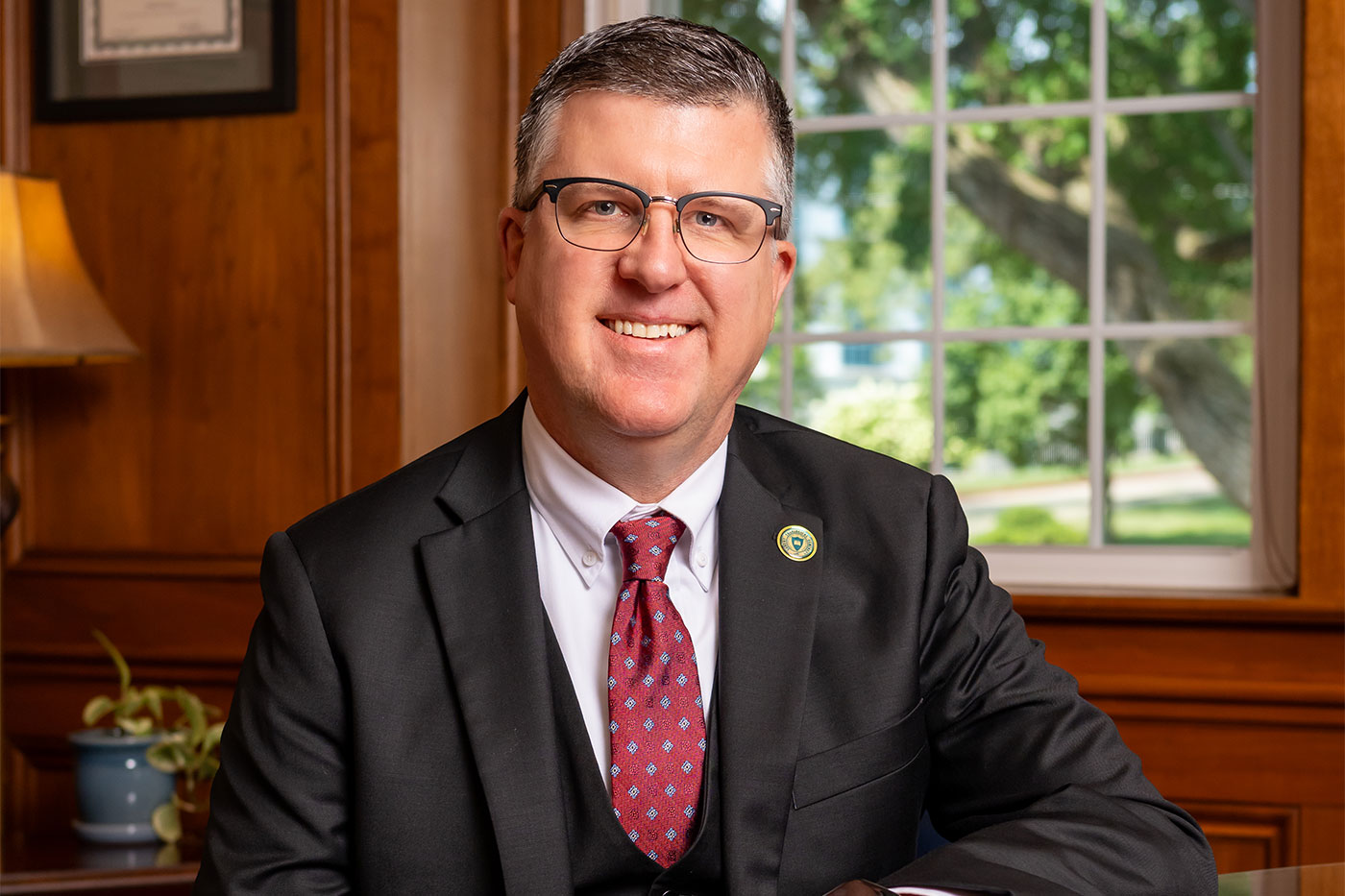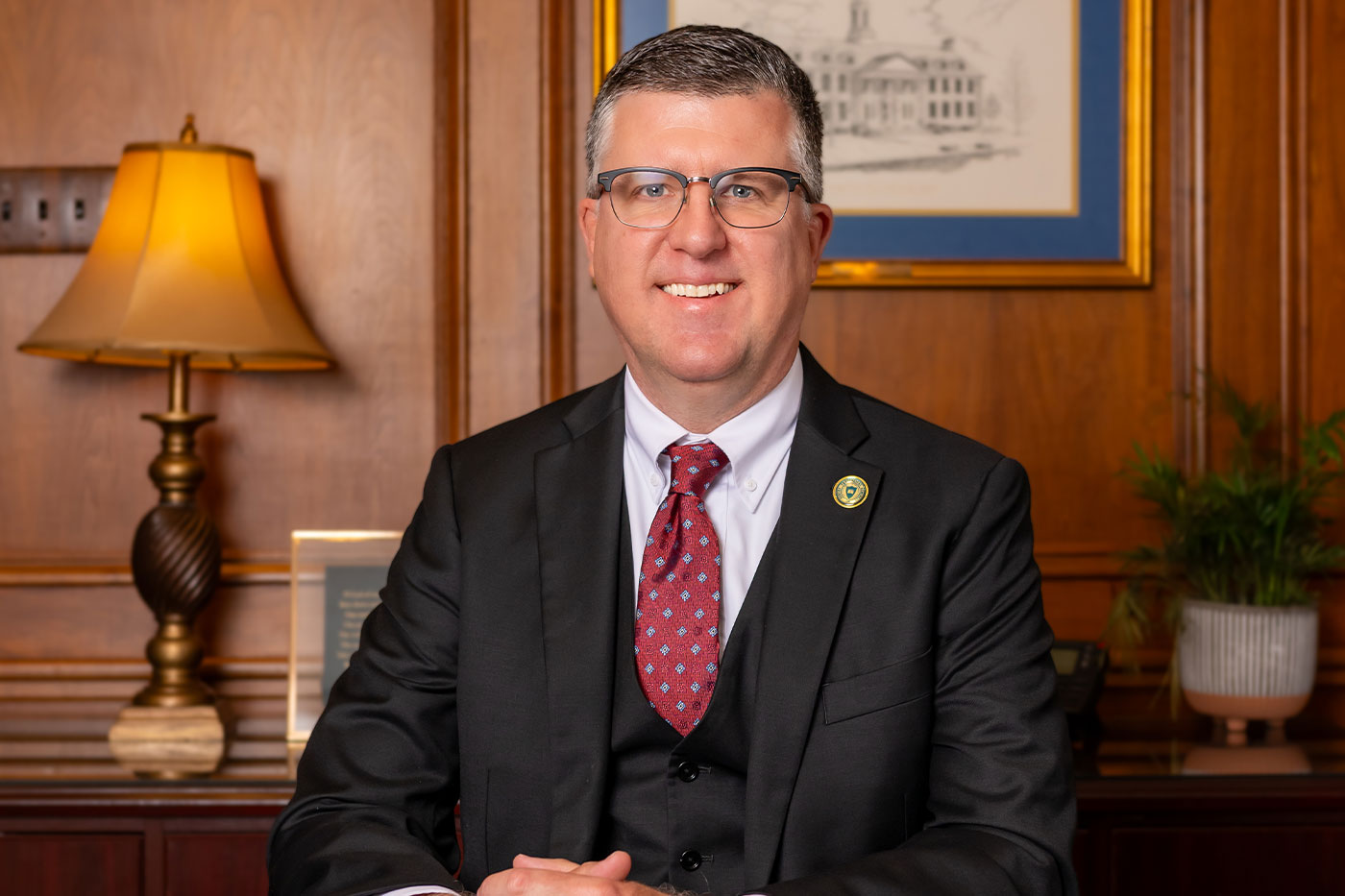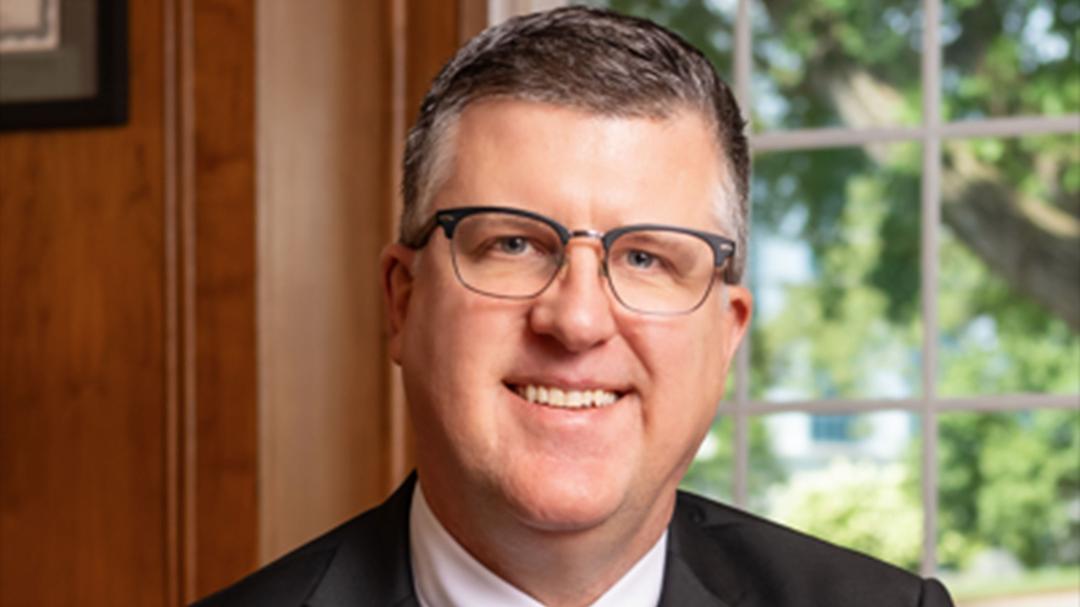Red Raider alumnus reflects on how his undergraduate experiences helped shape him for a life of service as theologian and seminary president.
David Watson wasn’t quite sure what his career might look like when he arrived on the campus of Texas Tech University. Certainly, there was no well-illumined path indicating he would one day become a seminary president.
But as a young person of faith finding his way through those formative and crucial years, it was Texas Tech that helped provide some of the resources, rigor and discipline that allowed a future vision to begin taking shape.
He wasn’t called to ministry during his days at Texas Tech, but that time in his life helped equip him for it.
It took a little effort, to be sure. Originally, Watson was a business major but soon decided that wasn’t the direction he wanted to go. Then there was a brief interlude where law school captivated him, but that also didn’t last.
In some ways, a single class made all the difference.
Watson was a student in the College of Arts & Sciences, pursuing an English degree with a Greek minor when he encountered the course, the Bible as Literature. It was in that class where his aspirations began to coalesce into something palpable.
“That class really challenged my faith and assumptions about the Bible,” he recalled. “I understand it had to be taught from a secular perspective because Texas Tech is a state-funded institution, and I have no problem with that, but that class taught me I could not take my own beliefs for granted.”
While Texas Tech didn’t affirm or endorse Watson’s sincerely held faith beliefs, it did cause him to look critically and objectively at why he believed the way he did. In turn, Watson’s faith became tethered to both his head and his heart.
“Other people believe differently than I do, and other people think differently about the Bible than I do,” he said. “And if I was going to hold my beliefs responsibly, I had to have some idea of why I held them to be true. I had to make the case for them in an intellectually responsible manner, and that was one of the things that nudged me toward going to seminary.”
It is those sorts of journeys that Texas Tech helps bring into focus for its students, said Tosha Dupras, dean of the College of Arts & Sciences.
“On behalf of the college, I would like to congratulate Dr. Watson on his appointment as president at Asbury Theological Seminary,” she said. “We are proud of his achievements, and equally proud of his representation of Texas Tech and the foundational humanities education that he credits with shaping his skills and influencing his journey. We look forward to lauding his success as president and for what comes next.”
Following his undergraduate days, Watson has blended academic rigor and curiosity with sincere faith, earning master’s and doctoral degrees from Southern Methodist University and subsequently spending the bulk of his career working at seminaries.
His professional trajectory reached a zenith in July 2025, when he was named president of Asbury Theological Seminary in Wilmore, Kentucky, an institution of higher education that, like Texas Tech, also was founded in 1923.
Growing up in the Dallas-Fort Worth area, Texas Tech made sense as the place where he would continue his education.
“I grew up in Fort Worth, and I had great experiences at Texas Tech,” he said. “I made a lot of great friends there.”
Watson also remembers the impact of the English department faculty at that time and the way they pushed him to broaden his writing talents.

“I remember in particular Walter McDonald was just an outstanding teacher and an outstanding person,” Watson said, referring to the longtime faculty member and former Texas Poet Laureate who passed away in 2022.
“I really appreciated him. He taught me skills about writing that would serve me even to the present day, especially about the economy of words in writing. That was an important thing for him, and it’s something that has stuck with me over the years and become an important part of my writing style. Texas Tech taught me to be a better writer and a better thinker.”
Those skills would be particularly critical in his role as a theologian. Watson served on the staff of First United Methodist Church in Dallas, and once he completed his doctoral work, he and his family moved to Dayton, Ohio, where he held a number of faculty and administrative roles at United Theological Seminary. In addition to his career as an academician, Watson also is an ordained elder in the Global Methodist Church.
Still, it was not until well into his time at United that he thought a seminary presidency might be in his future. His thinking began to change, though, as he continued to accumulate a wide range of experiences as a seminary administrator.
“I thought I could serve as president at some point in my career, and when the position at Asbury came open, I thought, ‘This could be a great opportunity,’” he said. “I had no idea if I would be selected, but we went through a lengthy process before they chose me as their final candidate, and I am very grateful for that.”
Steve Moore led the Asbury search committee that selected Watson, and Moore also has a connection to Texas Tech. He served for almost 10 years as executive director of the Wesley Foundation, a campus ministry located just east of the university in addition to being a faculty member.
“Several things came together for us,” he said of the search committee’s process. “David has a sense of humility. He is also a very clear thinker, and the people we talked to who had worked with him called him a person of deep integrity, a person of deep friendship, and even those who disagreed with him, said he is a class act.”
It’s those characteristics that Watson carries with him as he leads Asbury into its second century of impact.

“I want to continue the good work that is already happening here,” Watson said. “I came to Asbury because I like Asbury, and I like what they have been doing here for over a century. I admire that. I want to continue its emphasis on spiritual formation and scriptural holiness, and I want to continue the emphasis on biblical teaching and preaching.”
Looking back to his time at Texas Tech, Watson understands even better now just how important those years in Lubbock were.
“My undergraduate education at Texas Tech gave me a great launching pad, and from there, God has taken me places I’d have never anticipated,” he said. “Texas Tech taught me a lot. It taught me how to study. It helped me identify areas of inquiry that I was really interested in, and it opened doors for me. It gave me a very good foundation for the work that was to come. I have fond memories of my time there, and I’m glad I went to school there.”

